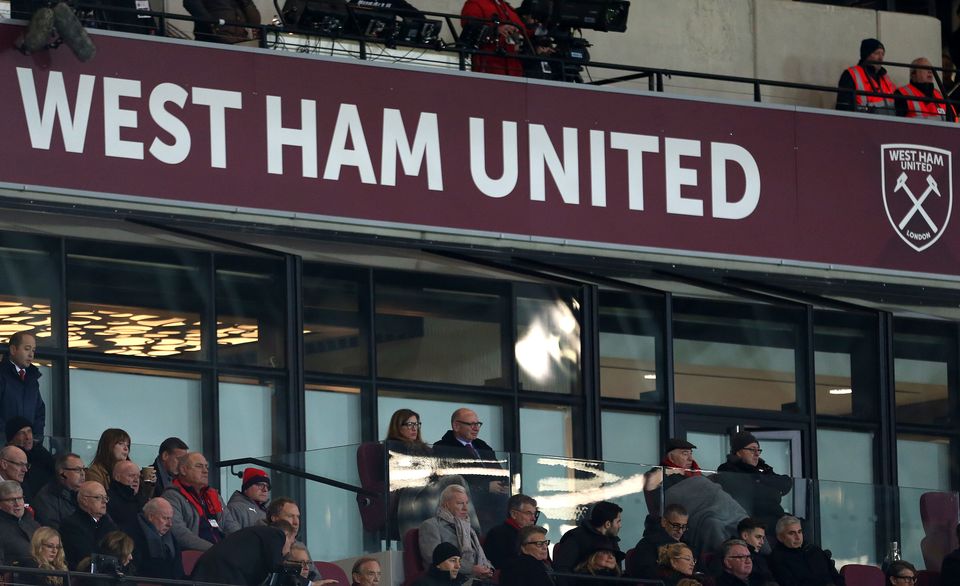Clubs from across the football pyramid are “alarmed” by the lack of consultation on legislation which could “fundamentally affect the future of English football”, West Ham vice-chairwoman Karren Brady has said.
The Apprentice star also argued that a lack of clarity from the Government on the ownership test is causing “significant uncertainty” for potential investors.
This came as the House of Lords continued its scrutiny of the Football Governance Bill, which seeks to establish an independent regulator for the top five tiers of the men’s game.
In the upper chamber, Baroness Brady said: “We are creating legislation which will profoundly affect 160 quite unique institutions, from Premier League clubs through to the National League community clubs, but it is important for everyone to understand that the consultation with these affected businesses by the current Government has been remarkably limited, almost unbelievably so.
“Just seven Premier League clubs, I was one of them, was granted a brief half-hour meeting with the Secretary of State over the summer.
“And following this cursory engagement, significant decisions were made that could fundamentally affect the future of English football, most notably with the inclusion of parachute payments within the backstop mechanism.
“This is particularly concerning given that fundamental issues still remained unresolved, we still lack any clarity on Uefa’s position on state interference, for example, this clearly creates profound uncertainty for clubs competing in or aspiring to European competition, as well as our national teams.”
“We don’t know what the ownership test will look like, this causes significant uncertainty for potential investors as to whether they are able to own a club,” she added.
Lady Brady continued: “I have spoken to many of my colleagues across all of the football pyramid, we are all alarmed about and puzzled by the lack of discussion on the Bill with ministers.
“Would the minister agree that we all want to get the detail of this Bill right? And can she see any downsides to providing meaningful opportunities to hear from all clubs across the football pyramid affected by the legislation?”
West Ham United vice-chairwoman Karren Brady in the stands (Steven Paston/PA)
Prior to this, Tory shadow sports minister Lord Parkinson of Whitley Bay had tabled an amendment which he said would allow clubs to “make their views known on this legislation” by including specific competitions on the face of the Bill.
Labour frontbencher Baroness Twycross told the upper chamber: “I don’t think the leagues are confused either on which leagues this legislation will apply to.”
She added: “This power is both reasonable and the result of evidence-based consultation with all key stakeholders in the industry.
“This power ensures that the competitions in scope can be amended in a timely manner and ensures the scope of the regime remains relevant.”
The peer later said: “Over the past three years there have been countless opportunities for all affected and interested parties to make representations.”
Lady Brady also raised concerns about the financial distribution backstop, which she said is “clearly designed as a mechanism to gain direct access to, and apportionate Premier League revenue, and no-one else’s”.
“I might add the backstop will allow the IFR (Independent Football Regulator) to do this even if it was against the Premier League clubs’ will, or even without the clubs’ agreement, even if it was to have a detrimental effect on the clubs and the overall competition it removes revenue from,” she added.
The backstop would allow the new IFR to intervene in the distribution of Premier League broadcast revenue down the leagues as a last resort.
It could be triggered by the Premier League, English Football League (EFL) or National League to mediate the fair financial distribution of this revenue if they are not able to come to an agreement.
